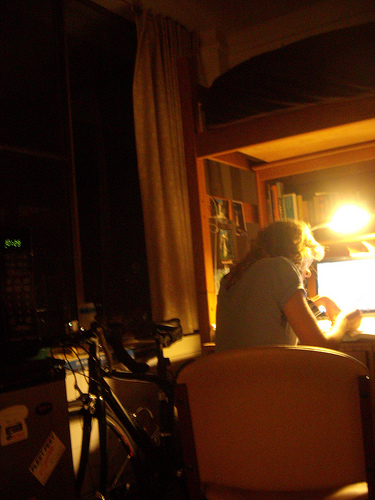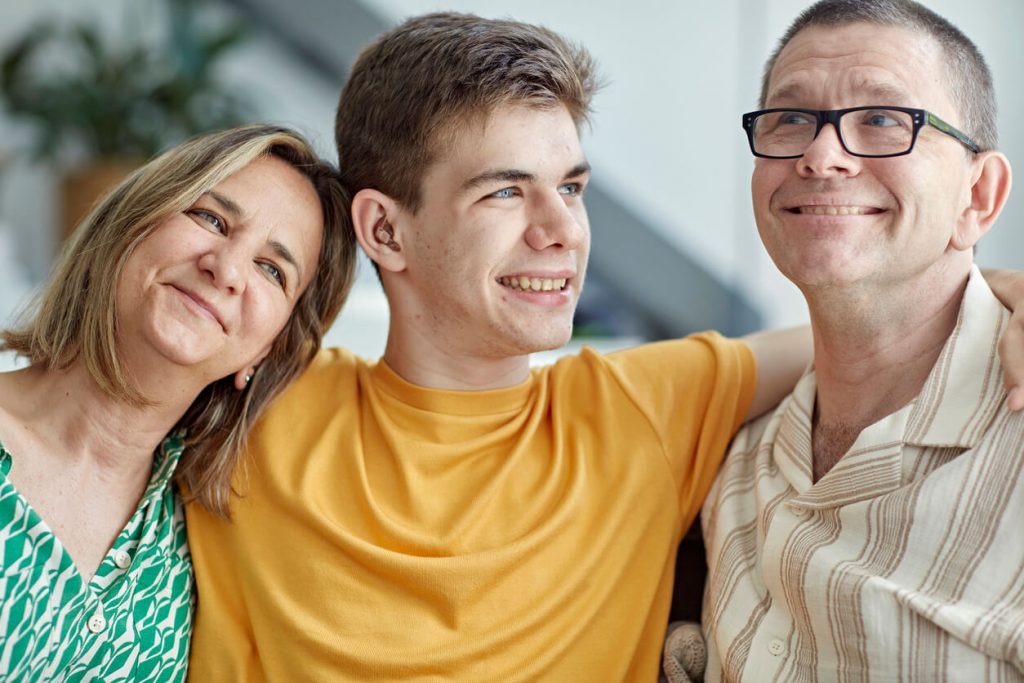 College is a strange transitional time for students. Freshmen, for the first time, will find themselves out of Mom and Dad’s care and into the transitory semi-responsibility of dorm life adulthood. This means they have a legal right to make their own choices, good or bad.
College is a strange transitional time for students. Freshmen, for the first time, will find themselves out of Mom and Dad’s care and into the transitory semi-responsibility of dorm life adulthood. This means they have a legal right to make their own choices, good or bad.
Parents, in this juncture, likewise go through a transition. How actively should they still attempt to protect their children? How much involvement do their kids want?
College Pressures
If you’ve been using Covenant Eyes Internet Accountability and Filtering for your kids, you may be wondering about how you should handle your young adult’s Internet safety. Many parents opt to let their college students choose for themselves. After all, they believe if they raised their children right, they should be well-equipped to handle Internet temptations.
In some cases, this is true. Unfortunately, it is not universally so. Students face enormous pressures from the sudden influx of often disparate worldviews, including challenges to their traditional social values…especially regarding sexuality.
The statistics about pornography and the college crowd are particularly troubling:
- 67% of young men and 49% of young women say viewing porn is an acceptable way to express one’s sexuality.
- 64% of college men and 18% of college women spend time online for Internet sex every week.
Some college students will stand firm, of course. But it’s never safe to assume that values taught during childhood will by definition carry a student through their college experience. LifeWay Research, for example, conducted a study which found that 70% of college students who attended church for at least one year in high school stopped going to church for at least one year in college. But there’s good news, too—39% eventually returned to the church “because my parents or family members encouraged me to attend.”
Parents still have a role to play in their adult children’s lives, even in the realm of Internet safety.
This begs the question: What is that role?
Transitional Accountability
Many parents find the best course of action is to offer to take a step back. They still encourage using Internet safety software, and still use it themselves, but may encourage their children to pick a different Accountability Partner. Leila, a Covenant Eyes user and mom, encourages this with her own adult children. As she puts it, “It doesn’t have to be Mom anymore.”
For Diane, the answer came in a burst of spontaneity. When her oldest son was about to start college, she and her husband sat down and spoke with him. Since he always had been proactive about protecting himself online, they knew he would choose to continue using Covenant Eyes. Their question, then, was more about their role in his safety.
“You can have other Accountability Partners,” I told him. No, he wanted to keep us as his partners. “Well, then, would you be our partners?” I asked, without really thinking about it. “Yeah,” he said, “I’d like that.”
It was a spontaneous decision, but Diane has not regretted it. “It was a way for us as adults to model to a young adult this idea of transparency,” she said.
Modeling Accountability
This sort of modeling, it turns out, is critical for young adults. College kids still look to their parents for an example. When parents continue to model accountability, their kids will be encouraged to continue it as well. But what about when parents decide to drop accountability? Often parents will cancel their own Covenant Eyes accounts as soon as their kids are out of the house. This is especially true of proactive parents, who signed up for Internet Accountability and Filtering to protect their children but not to protect themselves.
Unfortunately, this can be one of the worst things a parent can do for their college student’s online safety. “When parents don’t use the software, their kids won’t use the software,” explained Diane, who is now a member of the Customer Support Team. “As soon as parents feel they’re beyond the need for Internet Accountability, their young people look for the opportunity to be beyond it as well.”
The sad truth, she added, is that nobody is beyond temptation. “It’s the grandpas who come back to Covenant Eyes,” she said. “They don’t know how to find the start button on a computer, but they know how to find porn.”
Instead of assuming your college-age children will take care of themselves, the better solution is to continue to offer support and model accountability. This modeling mentality can expand beyond your own kids (and, eventually, grandkids) to the other children—and adults—in your life.
This is precisely why Leila and her husband keep using Covenant Eyes even though her children are now adults. She explained, “We personally do not feel like the two of us need it. However, when our kids or other people come into our home—and we have many ‘adopted’ kids—I think that we need to set the standard that says, ‘Our computer is holy ground.’”
Photo credit: elleinad
Pure Minds Online | Issue 36 | More in this issue: iPorn: Coming to a School Near You | Don Jon: Pornography, Hollywood, and a Wake-Up Call for Young Men






